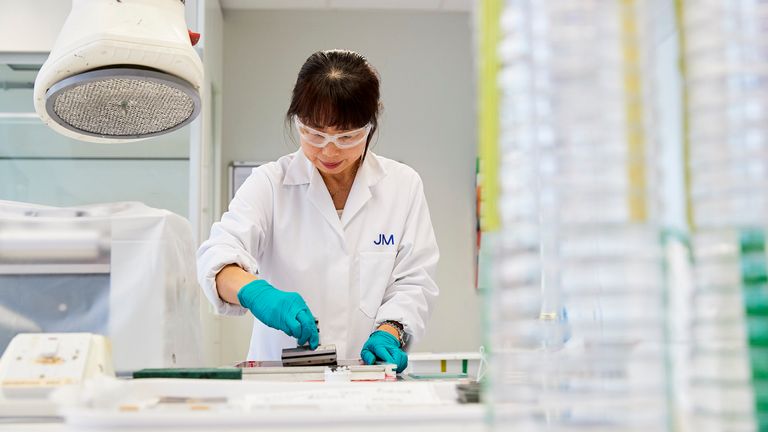Jobs at risk as Johnson Matthey plans to close battery materials division | Economic news
British industrial company Johnson Matthey plans to close its battery materials business, which employs 430 people, after failing to find a buyer.
The announcement comes two months after JM said he was looking to sell the business, dashing hopes of a British champion in a key industry to support the transition to electric vehicles.
It came as a surprise, just months after Business Secretary Kwasi Kwarteng opened the company’s new cutting-edge battery technology center near Oxford.
In an update on the plan, JM said discussions with a number of parties “have not resulted in an agreement to sell the entire business as a going concern”.
He added: “Therefore, we are announcing today that we are entering into a consultation with our employees regarding our employees regarding our proposed closure of the battery materials business, and we are pursuing the sale of its assets. individual.”
A spokesperson said ‘very significantly fewer’ than 400 are expected to ultimately see their jobs affected as the company remained in talks to sell parts of the business to different parties while there would also be redeployment across d other parts of the group.
Most Battery Materials employees are based in the UK with offices in Billingham, Teesside, Royston near Cambridge and the Technology Center near Oxford.
Others are based in Poland, Finland and Canada.
JM, which has a history of innovation, employs approximately 15,000 people in total.
The company had been betting on the growth of cathode materials – the most complex chemical component of car batteries – as it faced an expected decline in its core business of supplying catalytic converters for cars as vehicles phased out combustion engines .
But he decided to leave the business as he faced stiff competition from larger global competitors as well as poor returns.
JM already suffered a £314m hit by writing down the value of the division last year and expects to face a further charge of £150m, including redundancy costs, at the following a total or partial closure.
Shares fell 4% on the announcement.
